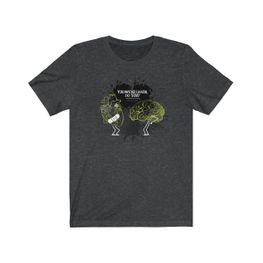On August 30 Interpol issued a Purple Notice about illegal timber trading activities involving four timber producers in Brazil.
Interpol is an international crime-fighting agency that communicates information via notices that are meant to enhance international cooperation between police forces. A Purple Notice is used to “seek or provide information on modus operandi, objects, devices and concealment methods used by criminals”.
The purple notice from Brazil was issued after Interpol held a training session in April at its Regional Bureau for South America in Buenos Aires, Argentina in order to improve “the capacity of the participants to root out corruption and related financial crimes in the forestry sector. The participants all hailed from police, financial intelligence units, forest and environmental law enforcement agencies, and anti-corruption units in Argentina, Bolivia, Brazil, Chile, Colombia, Ecuador, Paraguay, Peru, and Uruguay,” according to
Mongabay News.
“The history of Latin America is one where the exploitation of natural resources has been prevalent, and deforestation is perhaps one of the clearest examples of where corruption has been involved,” Rafael Cono Pena, the head of Interpol’s Regional Bureau for South America, said in a
statement.
The Brazilian environmental agency IBAMA first notified the country’s federal police of suspected illegal logging activities carried out by a sustainable forest management project called JOVINO VILHENA - Fazenda Esmeralda, based in Santarém, Para State, Brazil, on February 6 of last year. The corrupt method involves obtaining “fraudulent forest management plans that declare a higher density of a high-value timber species within a timber concession than actually exists on the ground, allowing criminals to harvest timber from unauthorized areas and report it as if it was legal — in other words, to launder their illegal timber,” explains
Mongabay. These false forest management plans are obtained through bribery or by the operators who forge them, according to the notice issued by Interpol.
Since then, three other companies, Pampa Exportações LTDA, K.M. Coercio e Exportação de Madeiras LTDA, and Jari Florestal S/A., have been investigated as well and have been found to be using illegal forest management plans. BVRio's Due Diligence and Risk Assesment System had already had a 'high risk' rating for these companies since 2015.
(Following
IHB, BVRio’s Risk Assessment System was developed to assist traders and buyers of tropical timber in verifying the legality status of the products purchased. Users can simply scan the bar codes of Timber Transportation Permits and receive a report on the legality status of the product checked.)
Interpol has estimated that corruption in the forestry sector is costing governments worldwide some $30 billion in lost revenue. James Anderson, head of Interpol’s Anti-Corruption and Financial Crimes unit, said that “corruption helps criminals facilitate the trafficking of goods such as timber, which results in substantial revenue and resource loss for developing countries’ governments and their economies, as well as local communities.”
Timber is not the only resource that is on the black market. Wildlife trafficking within South America is an extreme threat to flora and fauna, and worldwide about 350 million plants and animals are sold on the black market annually, generating an estimated $7 billion to $23 billion USD.
Sources:
Mongabay News,
IHB,
WWF,
Defenders of Wildlife


















































